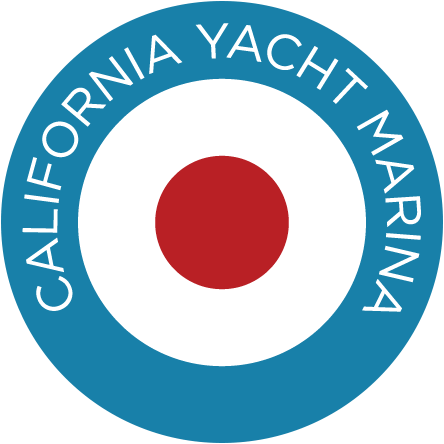California Yacht Marina
Do I Need Boat Insurance?

When you’re caught up in the excitement of buying a boat, insurance might not be the first thing on your mind. However, boat insurance is crucial for protecting your investment, whether you’re a seasoned sailor or a first-time boat owner. Boat insurance offers peace of mind, covering everything from accidental damage to liability concerns. But the question remains: Do you really need boat insurance? Explore the factors that influence this choice to help you make an informed decision.
Do I Need Boat Insurance?
The legal requirements for boat insurance vary. You may need coverage depending on the following:
Where You Live
Boat insurance laws vary by state. Surprisingly, only two states—Arkansas and Utah—mandate coverage for motorboats with engines over 50 horsepower and all personal watercraft (PWC), with the exception of airboats. Docking or operating a boat in these waters without the mandated insurance is illegal.
What Type of Boat You Have
The kind of vessel you own affects whether you should get boat insurance. For example, a small, engine-less boat like a kayak might not necessitate insurance, but a high-powered speedboat or luxury yacht certainly does. In short, the more valuable and complex the boat, the more you stand to lose in an incident, making insurance more of a necessity.
If You’re Financing Your Boat
It’s common for auto loan lenders to stipulate car insurance, and the same goes for financing a boat. Many lenders require comprehensive and collision insurance to protect their investments. These types of coverage ensure the boat remains in good condition and retains its value as collateral until you’ve paid off your loan.
Where You Plan to Dock
Some marinas and docking facilities require proof of liability insurance before they allow you to rent a slip. This requirement protects against damage your boat might cause to the marina or other boats. You may also be required to name the marina as an additional insured party on your policy. California Yacht Marina requires a copy of the current insurance policy with minimum liability coverage of $300,000 at all of its marinas. All California Yacht Marina locations will need to be named as additionally insured before a boat can move in. The insurance policy must include Oil Pollution, Fuel Spill Liability, and Hull Coverage.
If Your Homeowner’s Insurance Isn’t Enough
Some boat owners assume their homeowner’s insurance automatically covers their boat. While certain policies offer limited coverage for smaller boats or PWC stored on the property, this is insufficient for more valuable vessels or those docked at a marina. Typically, homeowner’s insurance limits are low and might not cover all damage types or liability. Analyze the coverage gaps in your homeowner’s policy to help you decide if additional boat insurance is necessary.
If You Want to Protect Your Investment
Boating is highly enjoyable, but it’s not without risks, from sudden storms damaging your vessel to the unfortunate event of theft or vandalism. Boat insurance safeguards your investment from these unforeseen circumstances. In this way, your focus isn’t just on meeting legal requirements or lender demands—it’s about ensuring peace of mind, knowing that your boat is protected against any mishaps it might face while docked or on the open water.
What Does Boat Insurance Cover?
Different boat insurance policies offer various types and levels of coverage, so it’s important to know what’s available to protect yourself, your passengers, and your investment.
Bodily Injury
This coverage protects you in case someone is injured while on your boat, covering medical bills, lost income, and legal expenses if you’re found liable. Bodily injury coverage is essential for ensuring safety and financial security in case of an accident.
Property Damage Liability
This aspect of boat insurance covers damages your boat causes to someone else’s property, including other boats, docks, and structures. Property damage liability coverage helps pay for repairs, safeguarding against expensive out-of-pocket costs if an accident occurs.
Collision
Collision coverage applies to repair or replacement costs if your boat is damaged in a collision, regardless of who is at fault. Keep in mind that you have to pay the deductible before this coverage kicks in.
Comprehensive
Comprehensive coverage protects your boat from non-collision-related incidents, including theft, vandalism, and natural disasters. This broad coverage is the key to comprehensive protection for your boat, hence the name.
Uninsured/Underinsured Motorist Coverage
Since boat insurance isn’t legally required in most places, chances are many boaters in your area don’t have it. This type of coverage protects you if you’re involved in an accident with a boater who isn’t insured or doesn’t have enough insurance to cover the damages. This important safeguard provides peace of mind in unpredictable waters.
Other Add-Ons
You can pick and choose certain add-ons to customize your boat insurance policy. Some popular options include:
- Hull coverage: This covers physical damage to your boat and generally includes trailers, motors, equipment, and accessories. Fire and windstorm damage are typical claims made under this coverage.
- Fuel spill liability: In the event of a fuel spill, this coverage helps manage the cleanup costs and covers any fines you may incur.
- Roadside assistance and on-water towing: These covered services can be a lifesaver for those unexpected moments when your boat breaks down, whether on the road or out on the water.
How Much Boat Insurance Do I Need?
Deciding on the amount of boat insurance to buy involves assessing the following factors:
Minimum Coverage Limits
Arkansas and Utah require minimum coverage as part of their boat insurance mandates. Boating in Arkansas requires at least $50,000 of liability coverage.
Utah law is more thorough, requiring boat owners to have the following coverage:
- $25,000 for bodily injury per person
- $50,000 for total bodily injury if multiple people are hurt
- $15,000 for property damage liability
Individual marinas and lenders may also specify the minimum coverage limits required to work with them.
The Value of Your Boat and Potential Risks
Meeting the legal minimum is one thing, but you may want to go above and beyond in some cases. After all, the more expensive your vessel, the more coverage you need to protect yourself financially in case of an accident.
It’s also worth considering the risks specific to your boat and usage habits. Do you sail in high-traffic areas or navigate shallow waterways? Do you operate a fast, powerful boat that is more likely to cause damage in a collision? In cases like this, boat insurance professionals suggest at least $1 million in liability coverage to reduce your financial risk.
How Much Does Boat Insurance Cost?
The cost of boat insurance varies widely, with minimum coverage limits typically ranging from $300 to $500 annually. Rates go up from here based on factors like the boat’s type and value, its intended use, and the owner’s personal profile. On average, you can expect to pay about 1.5% of the boat’s current market value each year for insurance. Follow these tips to help you get the most value from your coverage:
Only Buy What You Need
Customize your coverage by carefully evaluating the risks associated with your boating habits and the waters you navigate. The goal is to avoid being overinsured for your actual needs. For instance, you may not need comprehensive coverage if your boating activity is minimal and poses lower risks.
Understand Agreed Value vs. Cash Value
Agreed value policies generally have higher premiums but offer better financial protection, as they compensate for the boat’s full insured value without depreciation in case of a total loss. On the other hand, cheaper cash value policies reimburse the boat’s value at the time of loss, accounting for depreciation. Deciding between the two depends on your financial capacity to replace your boat and your tolerance for potential out-of-pocket expenses in a total loss scenario.
Take a Boater Safety Course
Many insurers view educated and certified boaters as lower-risk clients and, as such, offer discounts on premiums to those who complete a recognized safety course. Enhancing your nautical skills and knowledge is never a bad idea, and the lower insurance costs are a nice perk.
Invest in Safety Gear
Outfitting your vessel with modern safety equipment such as automatic fire extinguishers, bilge pumps, and GPS systems reduces the likelihood of accidents and emergencies on the water. Insurers recognize this, often rewarding boat owners with reduced premiums for decreasing the risk of costly claims.
Choose California Yacht Marina for Smooth Sailing Ahead
If you’re looking for a place to dock your boat in the Los Angeles area, look no further than California Yacht Marina. Our family-owned company operates three prime marina locations off of LA Harbor and Santa Monica Bay: Cabrillo, Wilmington, and Port Royal. We provide boaters with flexible storage options, from month-to-month to overnight stays, offering five-star amenities to make every visit special. Plus, our reciprocal berthing program grants access to any of our locations without additional berthing fees. For more information about renting a slip at one of our marinas, please contact us at (310) 732-2252 today.
